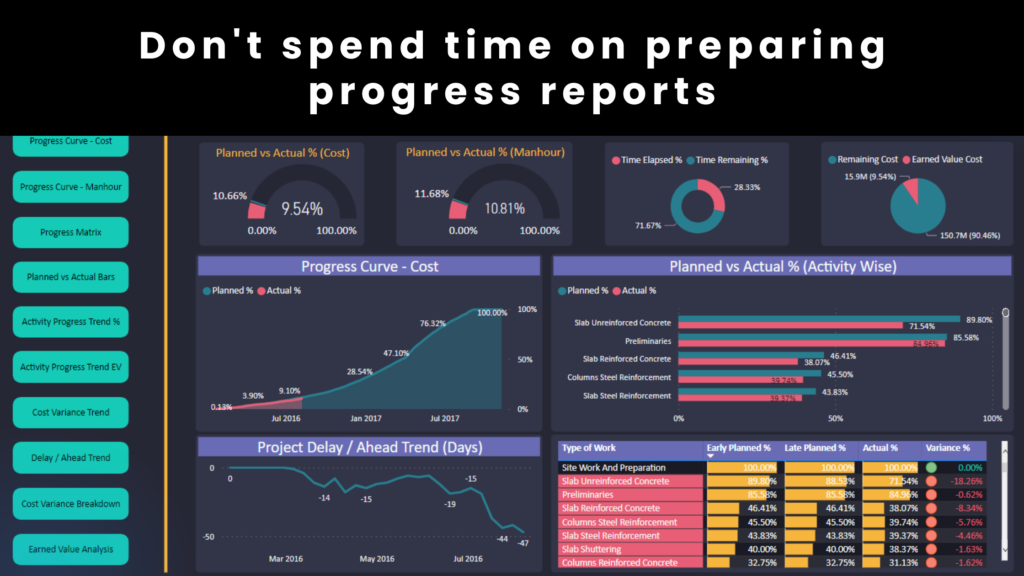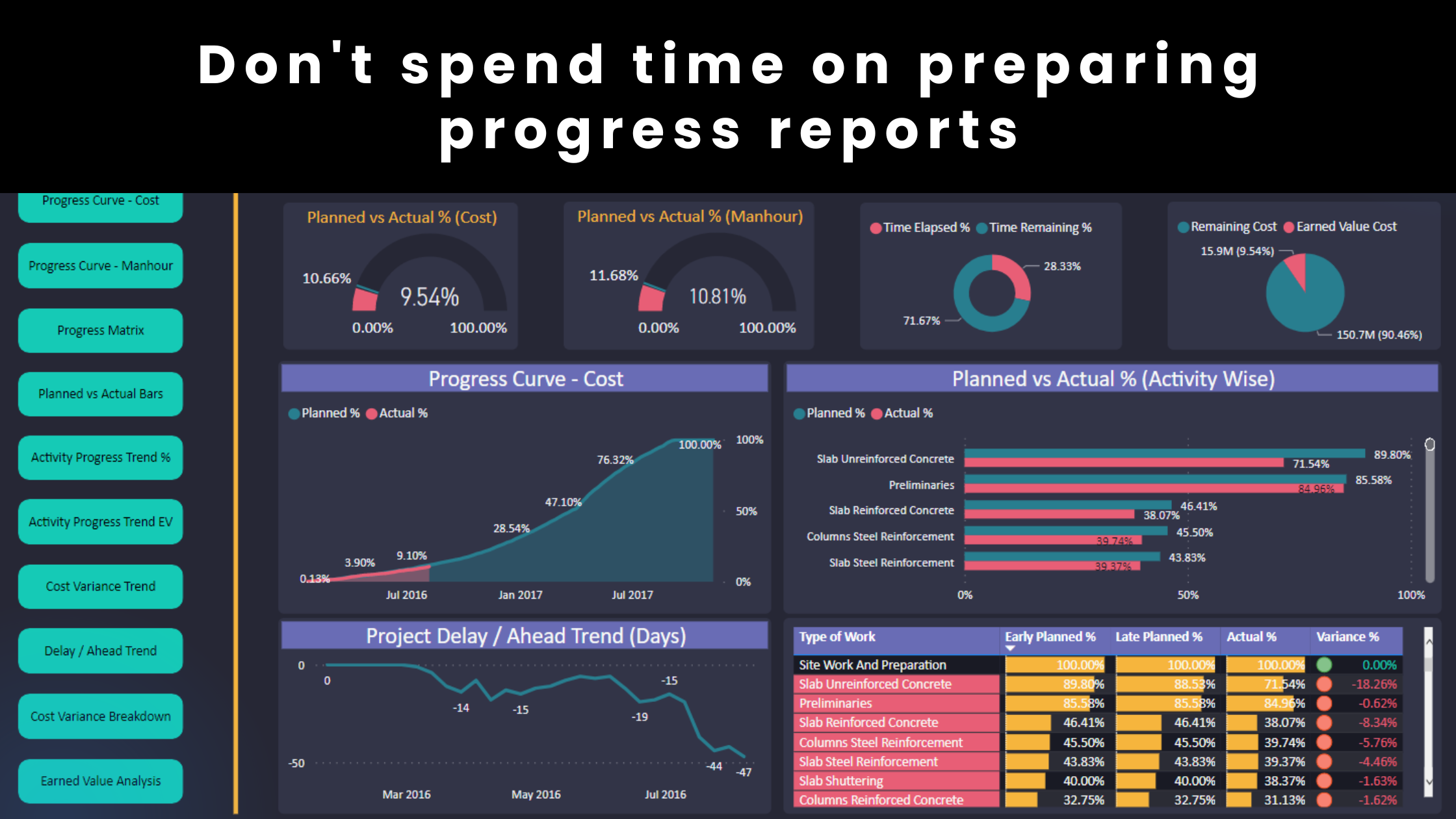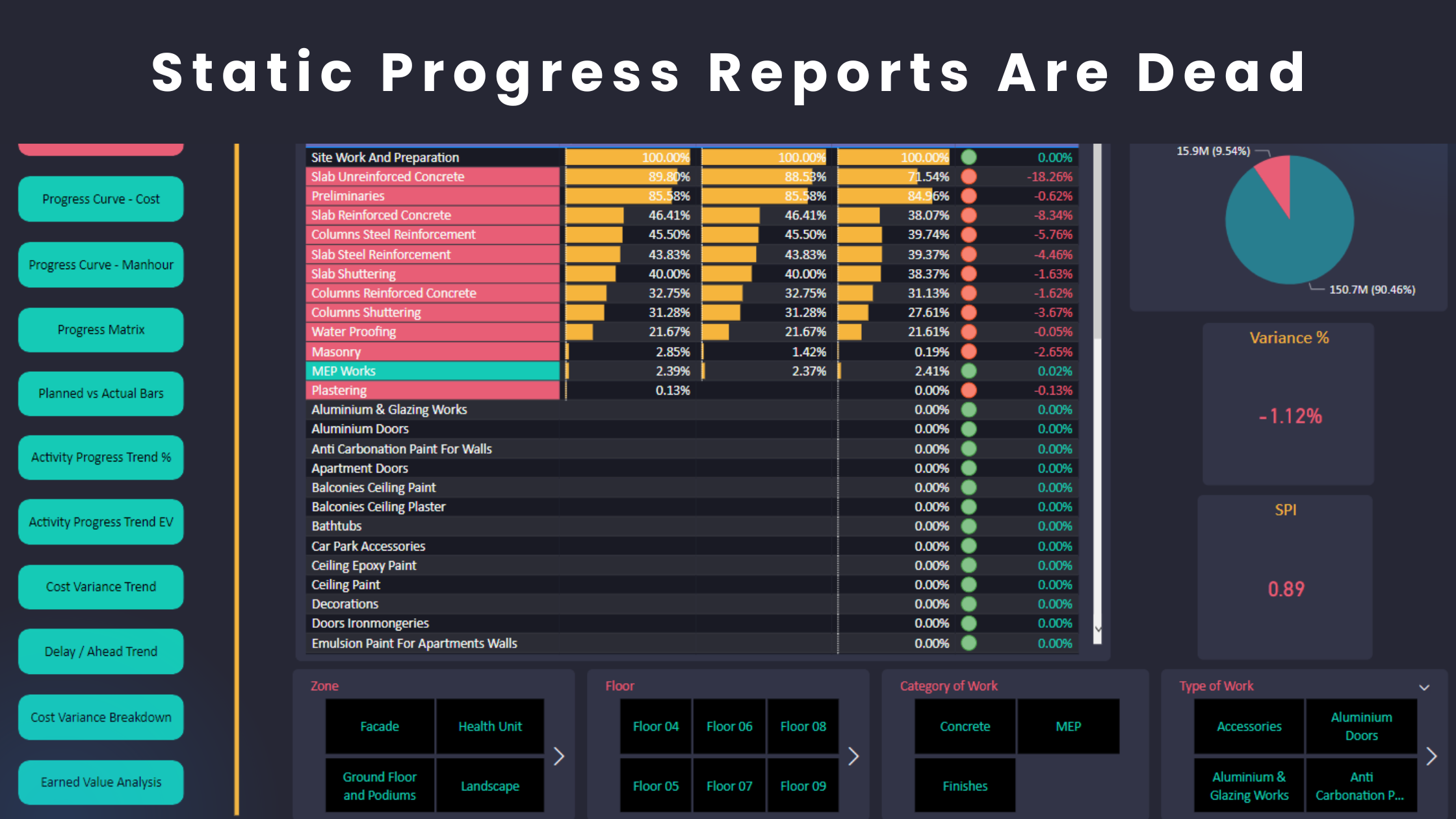Planning Engineers are mainly hired to prepare progress reports. Well, this article will demonstrate why planning engineers should NOT spend any time preparing progress reports. In fact, this task is what limits planning engineers’ ability to add value to their projects. Early in my career, I was told that preparing progress reports is the main task that I should focus on. I did not question that because of my limited experience back then so I did what everyone else around me was doing. Several years forward, I believe that spending time on progress reports should be entirely avoided if you want to thrive in your project control career.
I understand that this statement might be shocking to you but I am a practical person who loves to make conclusions based on logic and practical frameworks so let’s break this down. First, let’s review what “experienced” planning engineers currently do after they complete the schedule update.
- Assign the Baseline Schedule to the Schedule Update inside P6.
- Apply filters as necessary.
- Copy data into a configuration Excel sheet where formulas are established.
- Review the front end (the report itself) and make sure that there are no errors.
- Repeat the same cycle as many times as necessary to complete other report sections and dashboards (e.g. milestones, progress curve, resources, cost, work categories, variance analysis, breakdown analysis, delay highlights, long lead items, performance %’s and other indicators).
- Import historic XER files to analyze the progress further.
Preparing progress reports is a time and effort vampire. Project control is simple because most of the above reporting tasks are repetitive. You probably apply the same steps and perform the same mathematical operations in the same order when you prepare the report every week. While this workflow is perceived by many planning engineers as a lot of boring work, I see a golden opportunity. Power BI allows planning engineers to code the process, automate these tasks and complete the whole report within seconds on autopilot. This means that planning engineers don’t have to reinvent the wheel every time they prepare a progress report.
With every client I do consultations with, project managers expect more contributions and involvement from their planning engineers. However, they don’t want to push their planners further because they can see them work so hard on preparing reports. At the same time, companies don’t want to hire more expensive “qualified” planners because this will compromise their budget. It is an endless loop that got many large projects completed late and over budget. After planning engineers use power BI and have so much time saved up, they can focus on things that matter the most. They can do the followings:
- Identify and communicate project delays to their team.
- Prepare and monitor recovery measures.
- Identify more opportunities for Extension of Time Claims.
- Draft correspondences to Subcontractors that are in default to ensure that the progress is in accordance with the plan.
- Perform more comprehensive interactive analysis, give recommendations, attend meetings and prepare progress presentations for the decision-makers and the client.
- Monitor the progress of engineering and procurement and work closely with the respective departments.
- Review performance trends and highlight the potential delays before they occur to the project.
- Analyze the causes of payment deficits and recommend actions to get back on track with the original cash flow.
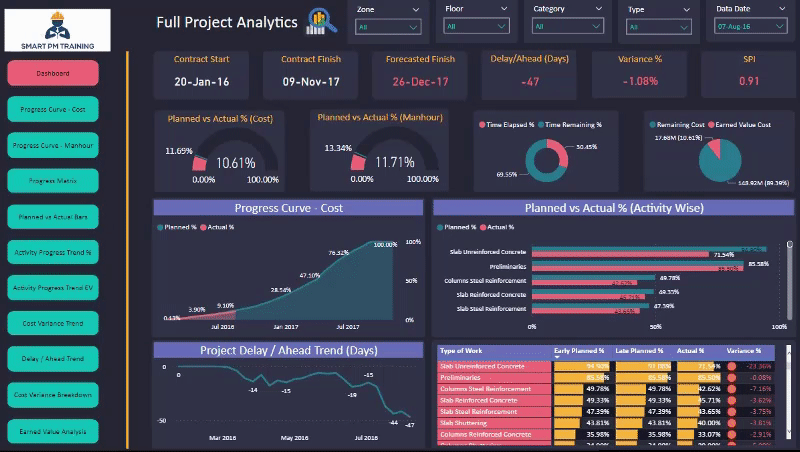
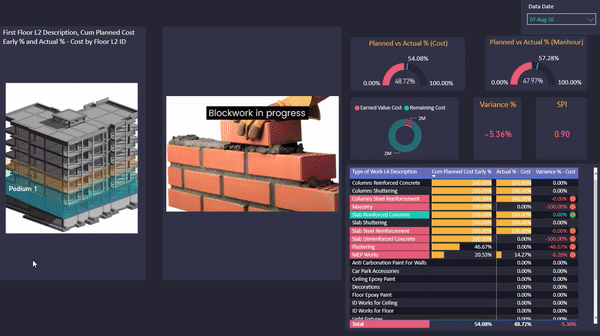
Nobody has enough time in a day to “manually” prepare a comprehensive progress report AND carry out the above tasks effectively. Both the decision makers and Planning engineers are fully aware of what is expected to perform effective project control. The number one challenge faced by planning engineers is not the lack of knowledge; it is the lack of time. We need to shift our mindset on progress reports and consider them as input instead of output to deliver the results we need. It is something that project control books or certifications don’t teach. This poor mindset of solely focusing on progress reports has been sold to all planning engineers across the globe and got us nowhere. As a result, planning engineers continue to struggle with delivering what is expected from them. In other words, the main work of planning engineers should start AFTER the progress report is completed. The quicker you complete the report, the more effective and qualified you become. Finally, not only can Power BI help planning engineers achieve amazing results but also help companies hire fewer planning engineers to do even more work.
Don’t work for your report. Make your reports work for you.
Regards,
Osama Saad, MBA, PMP, PSP, PMI-SP
Learn More!
